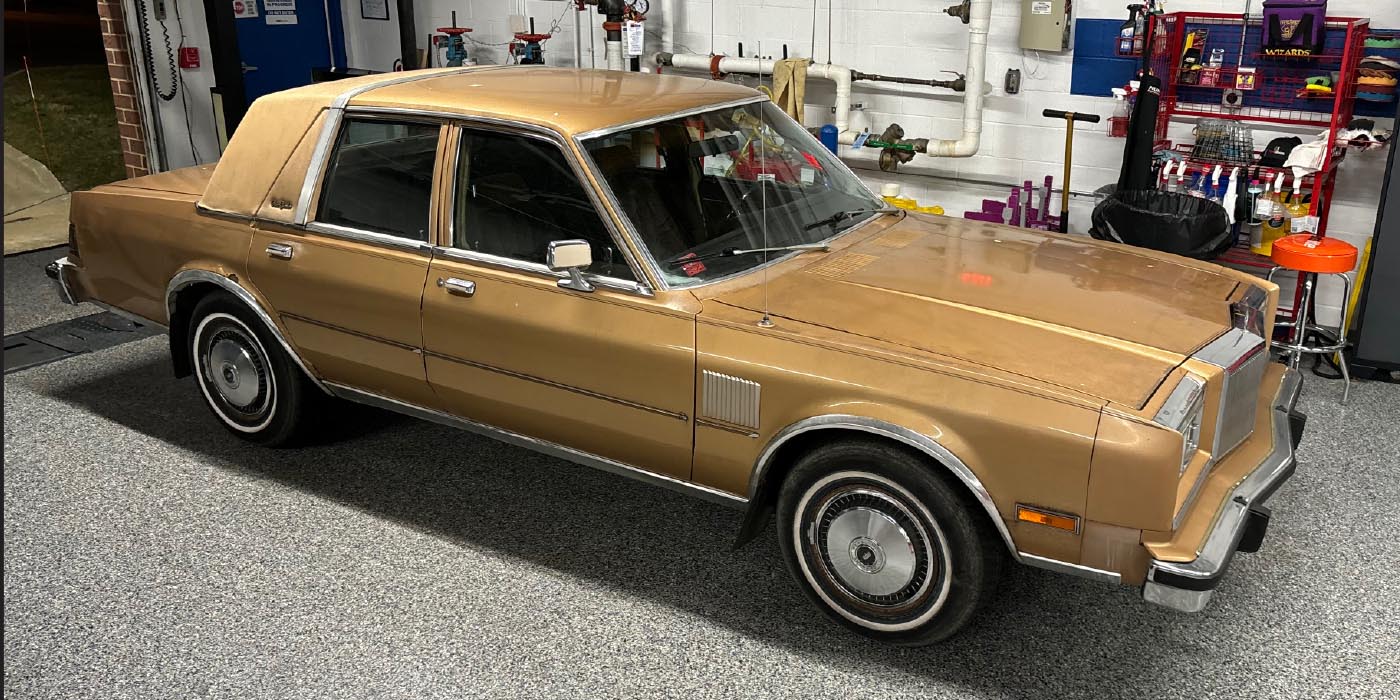Northwood University is unique because it offers degrees in automotive aftermarket studies and automotive retail management. On the campus, the future car dealers and the aftermarket professionals exist side-by-side on the same campus.
The new car dealer on the panel was Ryan LaFontaine. He is the general manager for LaFontaine Automotive Group of Highland, MI. His GM dealership is Leadership in Energy and Environmental Design (LEEDs) certified under the Green Building Rating System. The dealership is so green, it uses vegetable oil in the lifts and recycles 85 percent of the water from the car wash. His presentation focused on how “thinking green” is helping his dealership survive during these tough economic conditions.
Next up was the John Washbish (he is often referred to as the “professor” or “wizard” of the aftermarket). He is the current executive vice president for the Alliance (AllPro and Bumper to Bumper), and has worked for Clevite, Affinia and Moog. He is a graduate of Northwood with a degree in automotive aftermarket management. He received his practical education at his family’s automotive and heavy-duty parts distribution businesses in Louisville, KY.
Washbish pulled no punches in making the case that with the declining number of new car dealer service bays, it will be impossible for dealers to service an aging population of sophisticated vehicles. Washbish also looked at the issue from the consumer’s perspective who will have to drive farther and wait longer for warranty work to be performed.
His solution was for automakers to reach out to the independent shops to help dealers perform warranty and repair work. And he also called for shops to standardize certain aspects of their business operations so the aftermarket can operate more efficiently. Washbish also called for the passage of Right to Repair legislation as a way to keep drivers and the economy rolling.
I am for the dissemination of OEM repair information. But, I am neutral on the approach that should be taken with the automakers. But, it is clear in these difficult times for automakers that a consistent and committed solution must be taken or else we could not only have orphan vehicles, but no information on how to service them in the aftermarket.
The panel took questions from the audience at the end. One of the questions prompted a spirited dialog between LaFontaine and Washbish.
I don’t think LaFontaine or too many new car dealers fully understand the Right to Repair issue. He started to tell of cars that had been brought into his service department with botched repairs and how it made life difficult for his technicians.
Some part of his mind was working in the background said these statements were helping the aftermarket’s case for access to repair information instead of helping his. He changed direction to talk about the expenditure LaFontaine makes on tools and training and how it helps him to service his customers.
Washbish reminded him of the declining number of dealers and how it might be geographically impossible for drivers to get their cars serviced in a timely manner. LaFontaine came back saying that dealers might consider satellite repair facilities in areas where no dealer is present. In the end, they agreed to to disagree.
I approached the stage after it was all over with the rest of the audience to ask a few more questions. While I was standing there, I heard a couple of students talking to a alumnus or maybe a professor. The student asked asked a question that puts this carpocalypse issue of Right to Repair into perspective. He asked, “What are the dealer’s responsibilities to the customer?” I could not hear the response, but the question was more powerful than the answer.
This student was looking at the problem from the perspective of the customer. It was not about brand, bailouts or lawyers. All this time we have been considering the fiscal and legal implication of Right to Repair, we have often lost sight of the people who depend on their vehicles and what the responsibilities are of the automaker, dealer and repair shop to keep that person on the road so that person be a productive part of the economy.
Continental Tire Opens Retread Solutions Center in South Carolina
The company said it hopes to uncover new improvements and technologies to innovate the retread process.
Continental Tire recently opened its Continental Retread Solutions Development Center in Rock Hill, S.C., with a focus on retread process improvements and technology development. The goal, Continental says, is to bring “innovation and up-to-date retread processes to Continental’s Retread Solutions Partners and the fleets they serve.”
Sun Auto Tire & Service Expands Texas Store Count
The company has acquired Carrollton Complete Automotive, which offers a range of automotive services.
Philips Announces GoPure GP5212 Automotive Air Purifier
It uses a 3-layer filter to deliver cleaner, healthier, fresher air on the go, Lumileds said.
AACF Launches 65th Anniversary Fundraising Initiative
The campaign aims to raise $65,000 through 1,000 donations of $65 each.
Standard Motor Products Announces 123 New Numbers
The release provides new coverage in 53 distinct product categories and 47 part numbers for 2023 and 2024 model-year vehicles.
Other Posts
BendPak Founder Don Henthorn Passes Away
Grew company from small machine shop to global leader in car lifts and garage equipment.
ASE Practice Tests Available Online
You can get a good idea of what to expect by adding the official ASE practice tests to their study plans.
AACF Celebrates 65 Years Serving the Aftermarket
AACF will be announcing more details about this commemorative fundraiser April 1st.
Were things better when they were simpler? Probably not.
Last month, Andrew Markel purchased a 1982 Chrysler New Yorker for $1,500.


